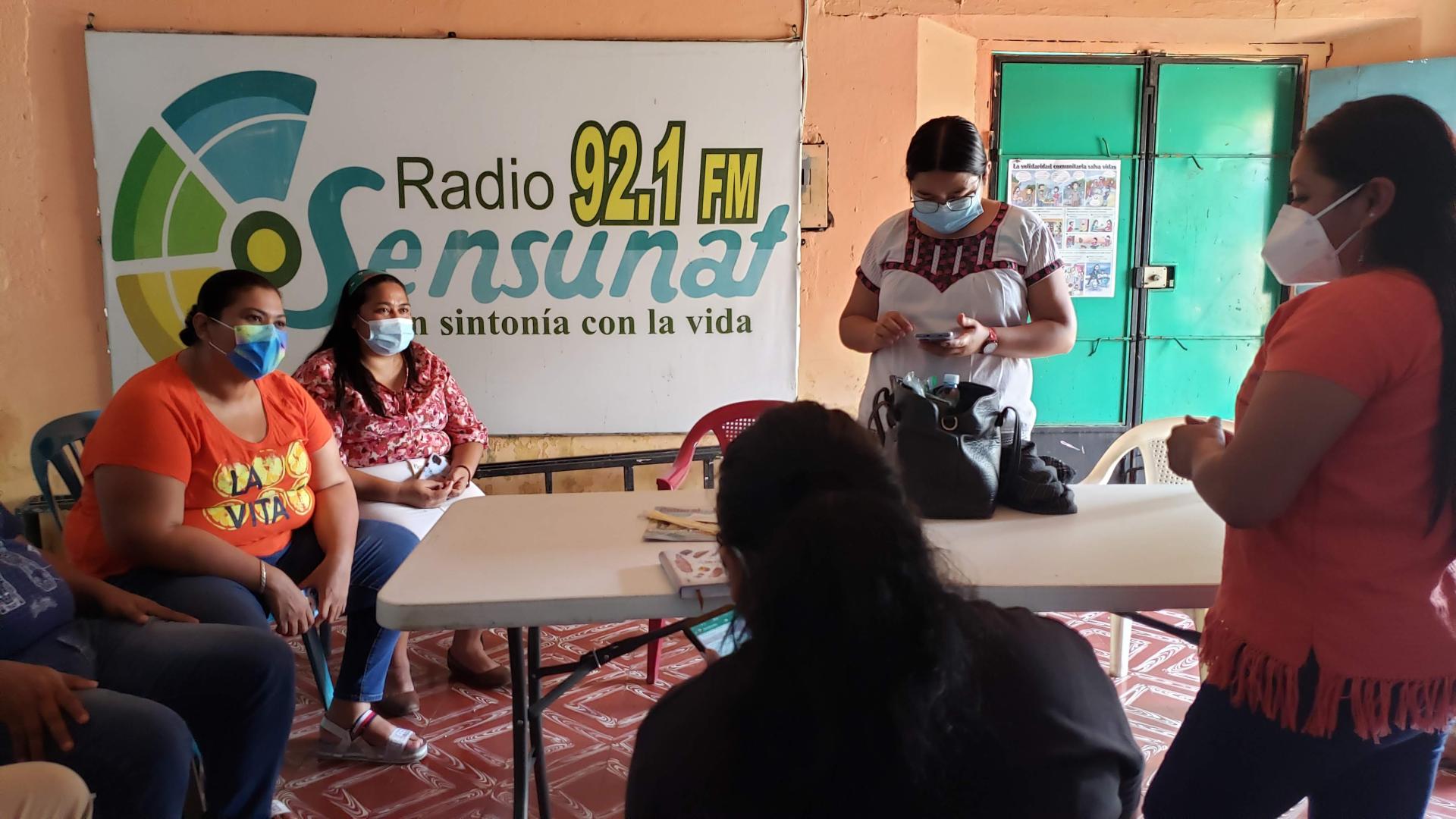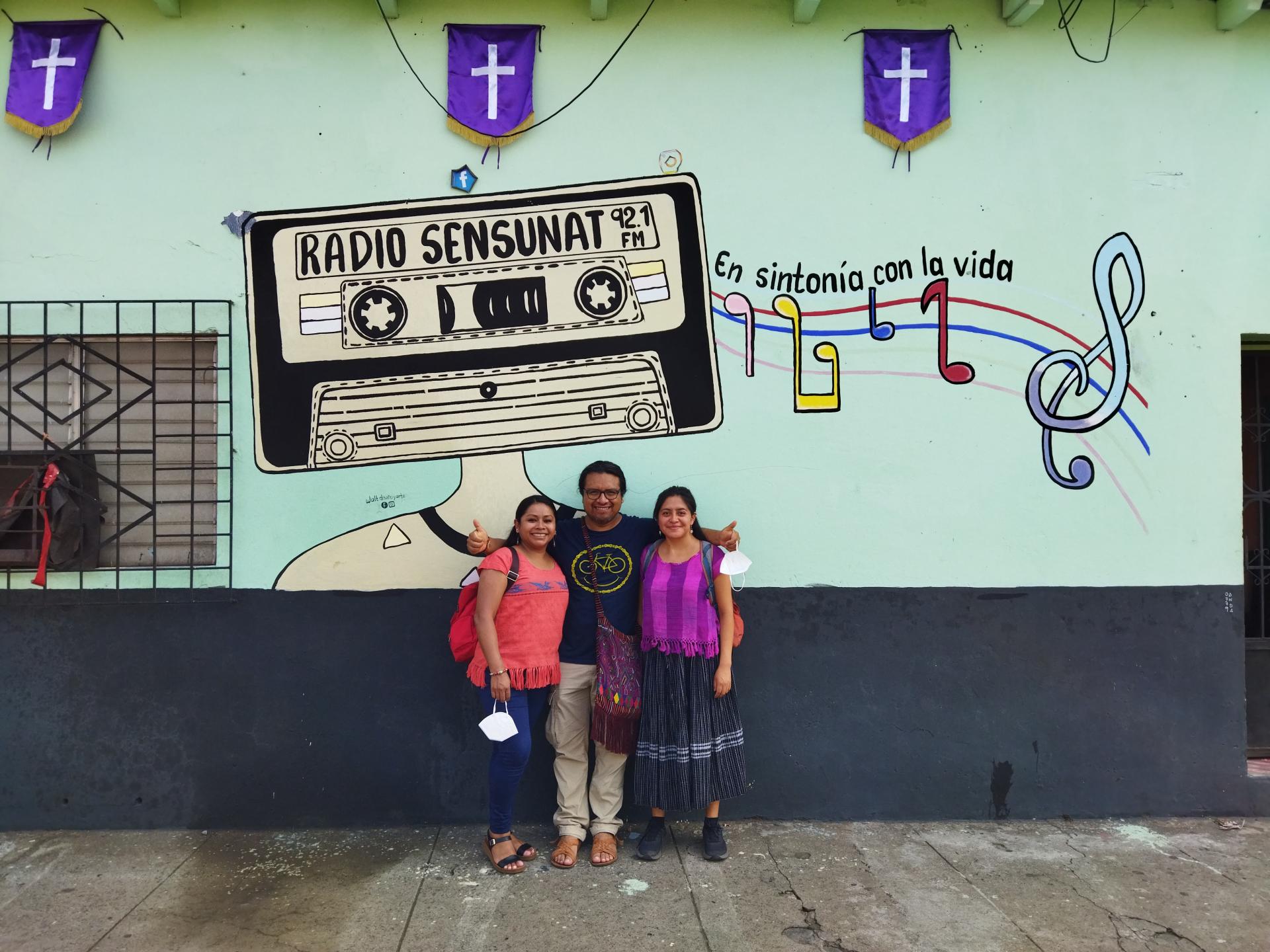
Cuando una lengua Indígena se extingue, se pierde una parte vital de una cultura. Las ideologías, los conocimientos y las formas de vida que se expresan a través de las palabras de esa lengua no pueden comunicarse con fluidez a través de una lengua extranjera. La colonización y la imposición de lenguas extranjeras han desplazado, en muchas ocasiones de forma abrupta y violenta, las lenguas originales de los Pueblos Indígenas. Sus historias, tradiciones y formas de vida tienen más posibilidades de sobrevivir si mantienen activamente su lengua, utilizándola como herramienta para comunicar su cultura.
La pérdida de la lengua ha tenido un gran impacto en la educación de los jóvenes Indígenas. Las nuevas generaciones han crecido con nuevas estructuras lingüísticas que han influido en su identidad, sus valores y sus relaciones. Idealmente, el gobierno debería proteger las lenguas Indígenas por el valor que añade a su riqueza cultural, especialmente cuando la lengua está amenazada. Sin embargo, en la realidad las lenguas Indígenas están relegadas, por lo que la tarea de encontrar estrategias y soluciones para rescatar las lenguas, se deja en manos de las comunidades.
Los hablantes de una lengua Indígena en peligro, normalmente los ancianos, se convierten en los guardianes de la lengua, los maestros de quienes debe aprenderse. Sin embargo, la cuestión es cómo involucrarlos y conectarlos con los jóvenes. Ahí es donde entra en juego la radio, un medio que sigue siendo el principal canal de comunicación para las comunidades Indígenas, especialmente las que viven en lugares remotos y aislados. La radio desempeña un papel importante en la promoción del uso de la lengua al ofrecer un espacio para la educación libre y la reflexión sobre su importancia para una comunidad.
La radio es una de las plataformas de comunicación más accesibles para los Pueblos Indígenas de muchos países, lo que ha dado lugar a un activo movimiento de radios comunitarias. Para muchos Pueblos Indígenas, el bajo costo de la radio la convierte en la herramienta ideal para defender sus culturas, tierras, recursos naturales y derechos. Incluso en las comunidades empobrecidas que carecen de electricidad, muchas personas pueden permitirse una pequeña radio que funciona con baterías. Los altos niveles de analfabetismo en muchas comunidades Indígenas impiden a la gente acceder a la información de fuentes impresas. En muchas zonas remotas, los Indígenas, especialmente los ancianos, pueden hablar sólo una lengua, lo que significa que los mensajes importantes emitidos en otras lenguas en los medios de comunicación convencionales a menudo no les llegan.

Equipo de Cultural Survival visitando a Radio Sensunat.
En El Salvador, una emisora de radio donde las comunidades Indígenas luchan por seguir practicando su cultura y mantener sus lenguas cuando quedan pocos hablantes nativos, está desempeñando un papel importante en este movimiento. Se trata de Radio Sensunat, que está recuperando la lengua náhuat, la cual disminuyó drásticamente tras una represión histórica que castigaba a la gente por expresarse en su lengua nativa. El legado de esta represión, a menudo violenta, que se produjo principalmente entre 1930 y 1945, ha dado lugar a un trauma generacional que persiste en la actualidad.
Para hacer frente a esta situación, Radio Sensunat decidió crear un proyecto en el que participaran las generaciones silenciadas, aquellas que tuvieron que callar sus conocimientos y su lengua para sobrevivir. La lengua náhuat es la única que sobrevive de los tres Pueblos Indígenas que habitan en El Salvador: los Lencas, los Cacaoperas y los náhuat. A pesar del valor y la urgencia de revitalizar el máhuat, no fue hasta 2014 cuando el gobierno salvadoreño reconoció legalmente dicha lengua. Sin embargo, desde entonces no se han realizado esfuerzos para protegerla; se desconoce el número exacto, pero se estima que solo quedan unos cientos de hablantes.
Como parte de su labor de reivindicación de los derechos de los Pueblos Indígenas y de apoyo a las culturas y lenguas Indígenas, Radio Sensunat está educando a la comunidad y promoviendo sus lenguas nativas. La idea ha sido utilizar la radio como herramienta para dar a conocer los conocimientos de los ancianos Náhuat a disposición de toda la población. “Estamos haciendo esfuerzos para que nuestra lengua no desaparezca. No distinguimos entre generaciones; todos pueden enseñar y todos pueden aprender”, dicen los miembros de Radio Sensunat. Un equipo de la emisora entrevistó a ancianos de las comunidades de Izalco, Nahuizalco, Santo Domingo de Guzmán, Tacuba, Cantón el Sincuyo, Cantón el Rosario y Cantón Rafael y a partir de estas conversaciones, produjeron contenidos en náhuat y español para emitirlos varias veces al día. Los ancianos hablaban de aspectos de la vida cotidiana del pueblo Náhuat, de los nombres de ciertos alimentos y de cómo decir ciertas palabras comunes en idioma náhuat para que los oyentes se familiarizaran con la lengua y sintieran más curiosidad por ella.
Otro objetivo del proyecto fue dar reconocimiento a los ancianos de la comunidad. Tener la oportunidad de hablar su lengua delante de un micrófono y hacerlo con total libertad fue gratificante, ya que durante muchos años se les había negado el derecho a hablar su lengua materna. Cuando oyeron sus voces en la radio, se quedaron asombrados. Los miembros de Radio Sensunat afirman que incluir a los ancianos, tradicionalmente excluidos, les ha abierto el camino para seguir participando después de la pandemia: “Cuando el Covid-19 llegó a las comunidades, nuestra emisora coordinó con los ancianos para que compartieran información sobre las medidas a tener en cuenta para combatir la pandemia”. Los mensajes sobre el uso de mascarillas, el lavado de manos y el distanciamiento social llegaron a las personas que hablan náhuat, que sintieron que podían confiar en la información, ya que procedía de personas de la comunidad.

Equipo de Cultural Survival visitando a Radio Sensunat.
Los esfuerzos por dar más protagonismo a la lengua náhuat fueron bien recibidos en las comunidades donde tienen cobertura la emisora de radio. Los oyentes empezaron a reconocer la lengua y a verla como un elemento importante y valioso en la comunidad, incluyendo las generaciones mayores, que durante tanto tiempo habían estado condicionadas a olvidar su lengua y a no enseñarla a las nuevas generaciones. “Hoy en día, los ancianos siguen viniendo a la emisora con ganas de compartir una canción, contar una historia o hablar de otros temas”, afirman los miembros de Sensunat, que añaden que es una gran alegría para ellos que los ancianos pidan un espacio en la radio por iniciativa propia. Al mismo tiempo, los oyentes disfrutan aprendiendo cosas nuevas y se entretienen con los conocimientos de los ancianos.
Esta experiencia también permitió a Radio Sensunat fortalecer alianzas con otras comunidades Indígenas, como Santo Domingo de Guzmán, que cuenta con varios hablantes náhuat. Para las comunidades náhuat, la radio sigue siendo un importante medio de comunicación, ya que el gobierno las trata como si fueran invisibles. Tener la oportunidad de escuchar y hablar su lengua nativa les permite reconocer que tienen una historia compartida, lo que fortalece la relación entre ellos y les ayuda a luchar contra los problemas de la comunidad.
“Me encanta hablar y cantar en náhuat, porque es la lengua que nos enseñaron nuestros abuelos”, dice Antonia Morales (Náhuat), una anciana de la comunidad Indígena de Santo Domingo de Guzmán que participó en el proyecto. «No me avergüenzo de hablar náhuat, al contrario, me siento orgullosa de hablarlo y enseñarlo a las niñas y niños, porque es lo que me enseñó mi madre, quien fue una de las precursoras de inculcar, escribir y cantar canciones en náhuat. Agradecemos que esta radio nos dé a conocer para que nuestra cultura no muera», comenta Estela López, también de Santo Domingo de Guzmán.
Otras participantes como Cecilia Isidro del movimiento de Unificación Indígena de Nahizalco, compartió la perspectiva de las mujeres: “Nosotras, como mujeres jóvenes hemos sido marginadas a veces, por ser Indígenas. Pero al dejarnos involucrar y participar en espacios que nos ayudan a conocer nuestra identidad, nos da la fuerza para ayudar a otros jóvenes a garantizar que ellos también conozcan nuestros orígenes. Agradecemos a Radio Sensunat por darnos la oportunidad de participar y dar a conocer nuestra cultura”. Mateo Rafael Latín (Náhuat), alcalde de la comunidad Indígena de Izalco agrega, “La verdad es que estamos cansados de tanta marginalización y abuso de nuestra cultura. Lucharemos para proteger el legado de nuestros antepasados, y le agradecemos a esta radio comunitaria por abrir espacios de participación para defender lo que nuestras abuelas y abuelos nos enseñaron”.
Ligia Aguiñada, Bessi Ramírez y Jehovany Rodríguez, miembros de la comunidad náhuat, de Radio Sensunat, han contribuido a este artículo.
Foto superior: Ceremonia de inauguración de los talleres de radio comunitaria de Radio Sensunat en El Salvador.
Radio Sensunat es socia del Fondo de Medios Comunitarios Indígenas de Cultural Survival. Foto cortesía de Radio Sensunat.
